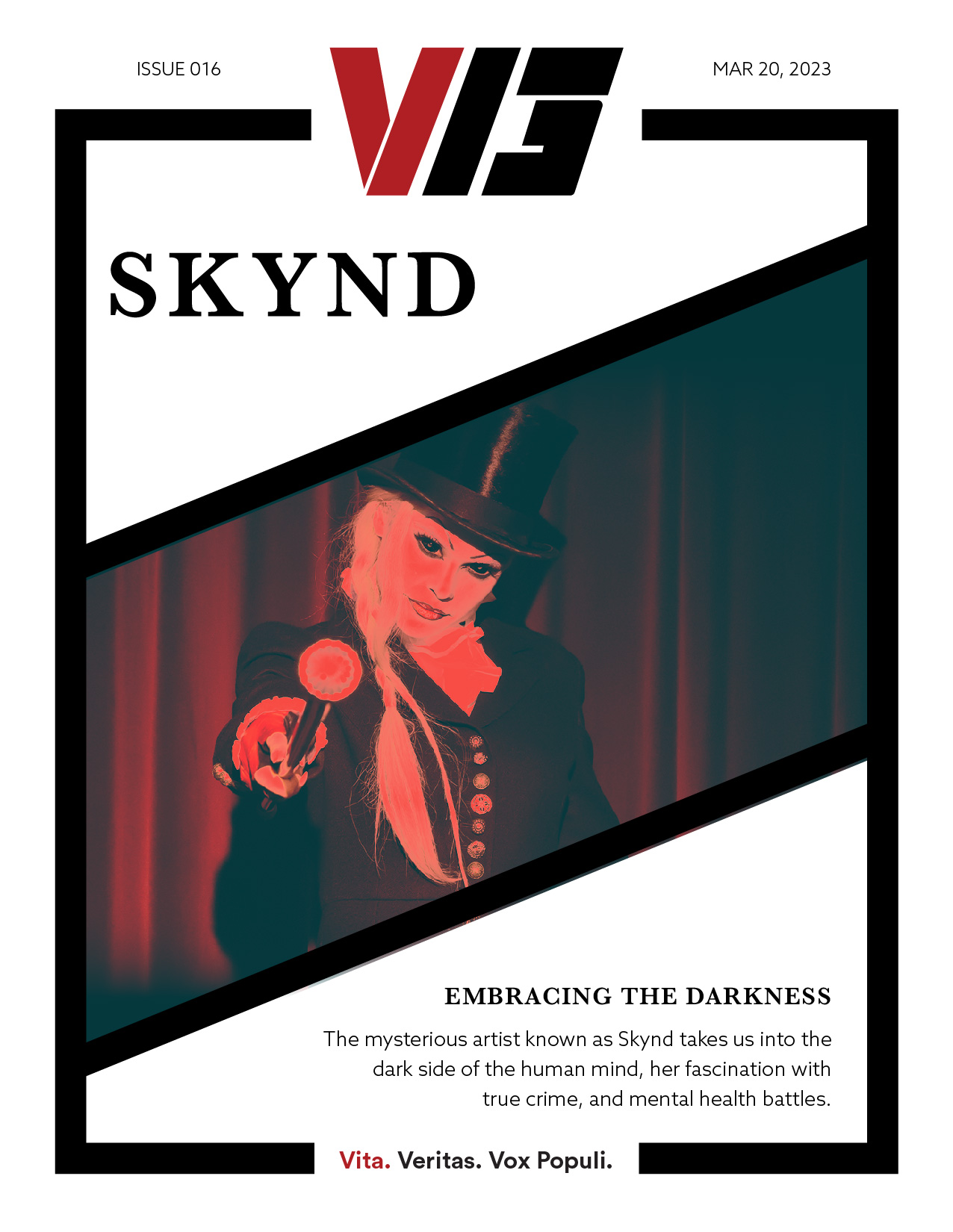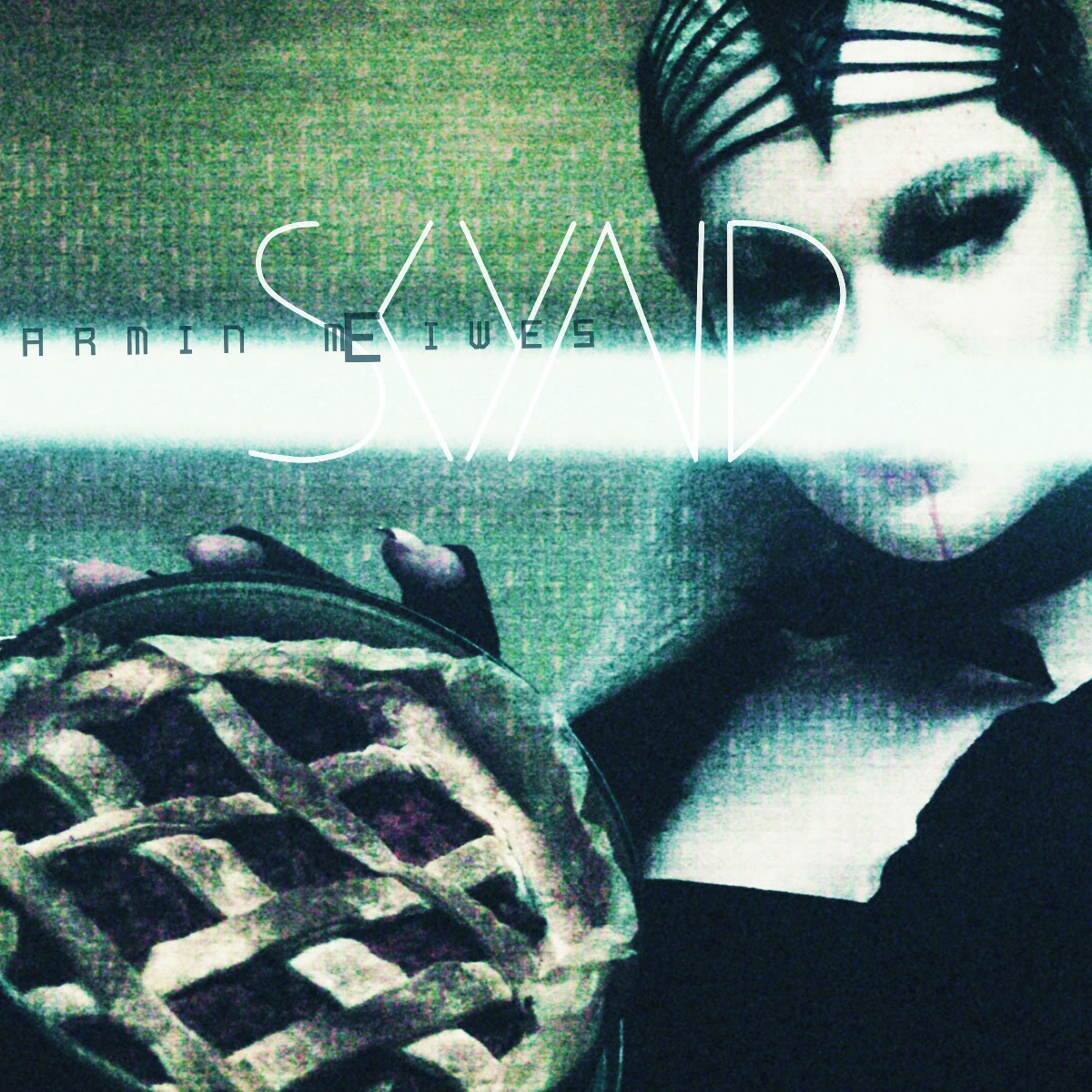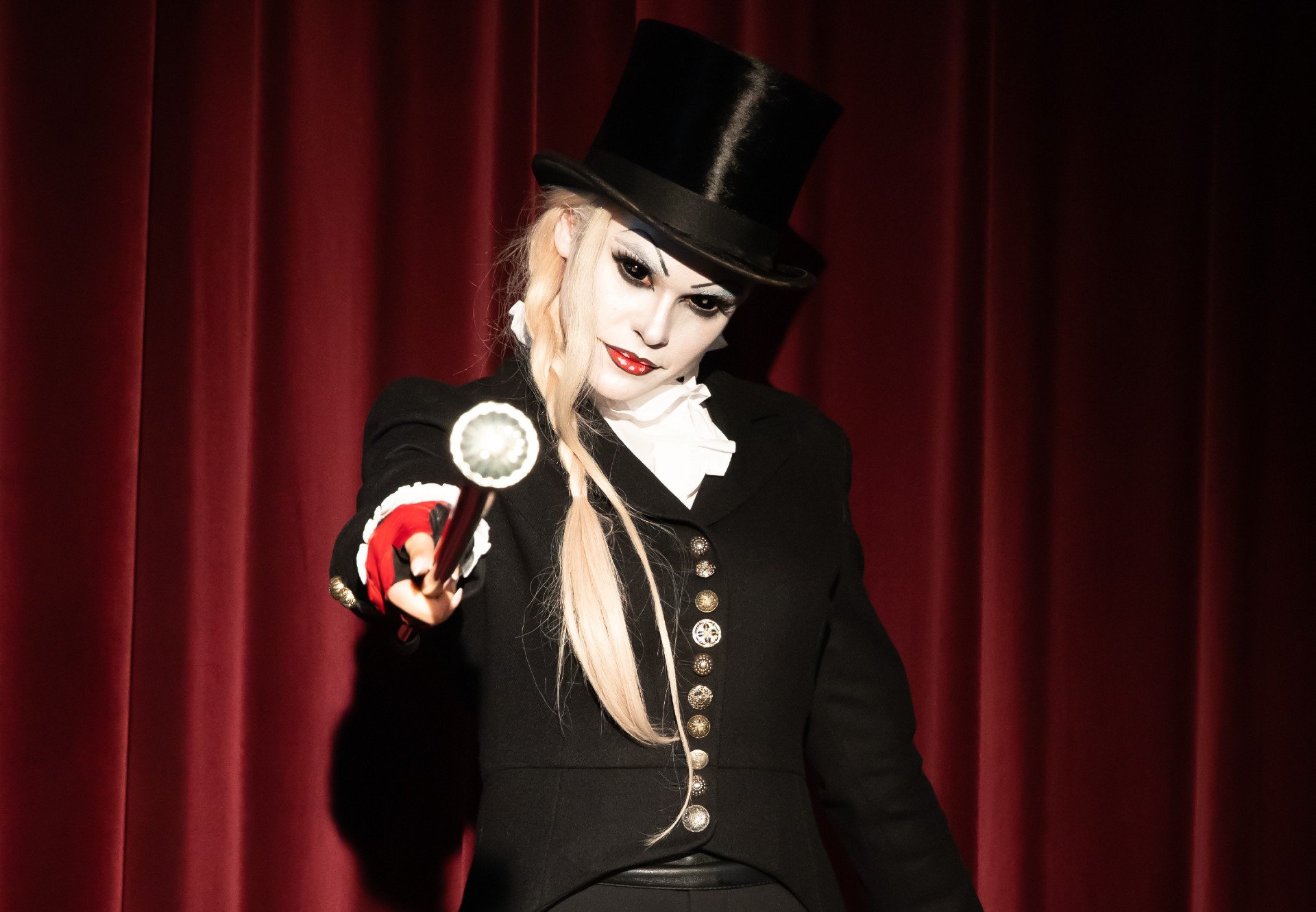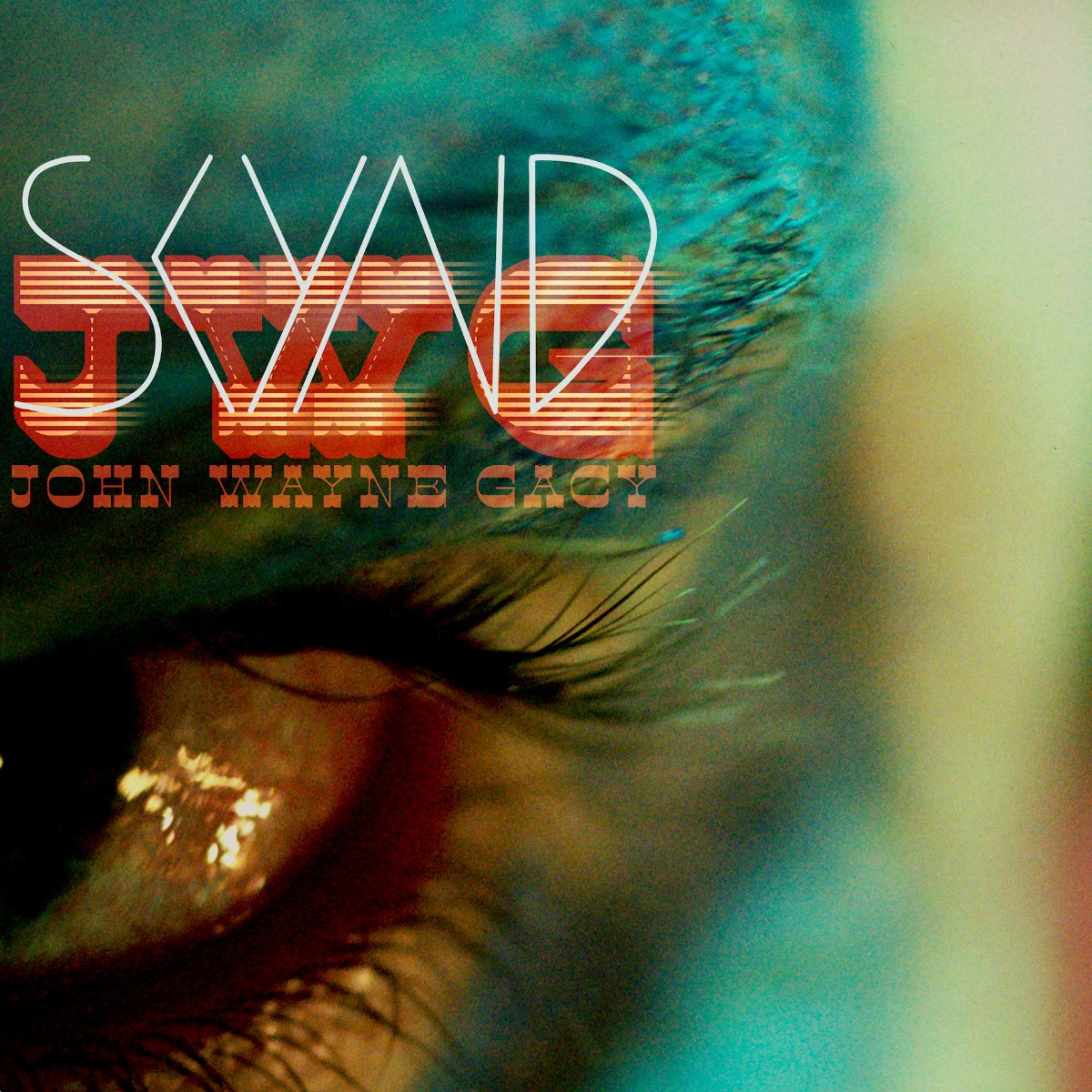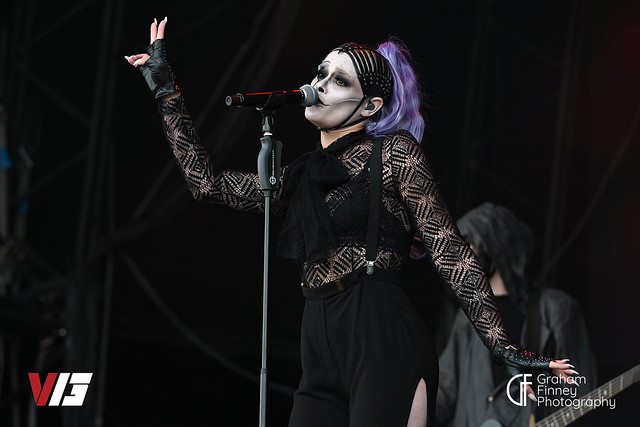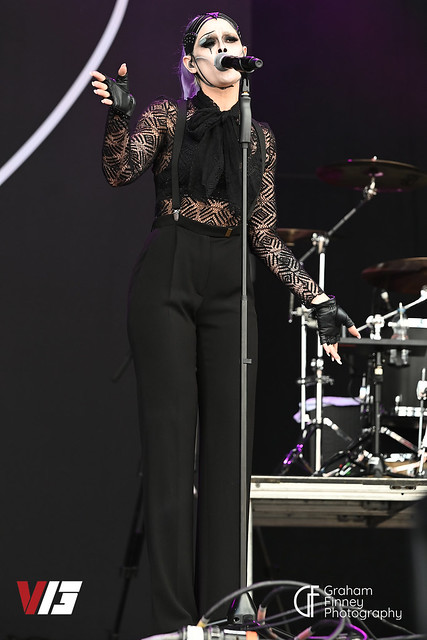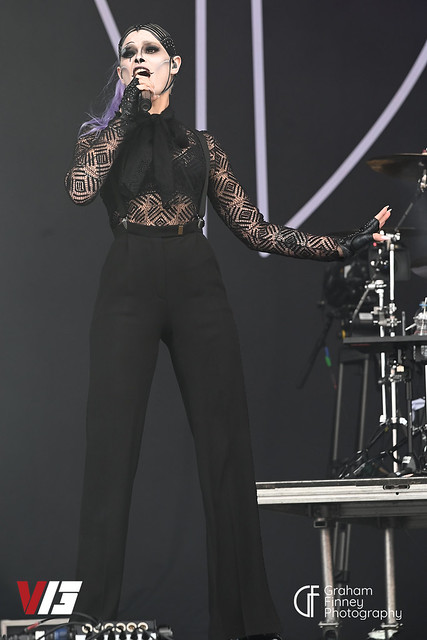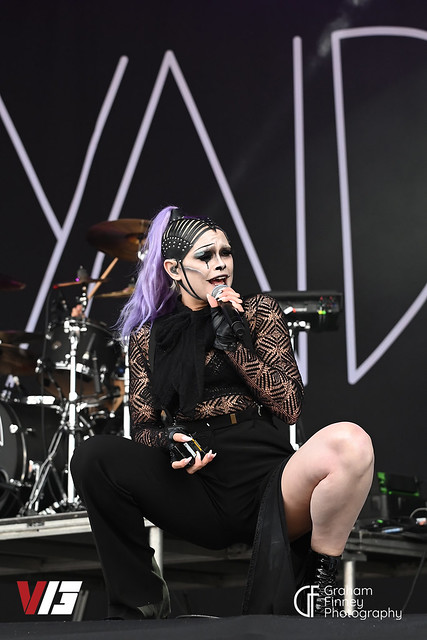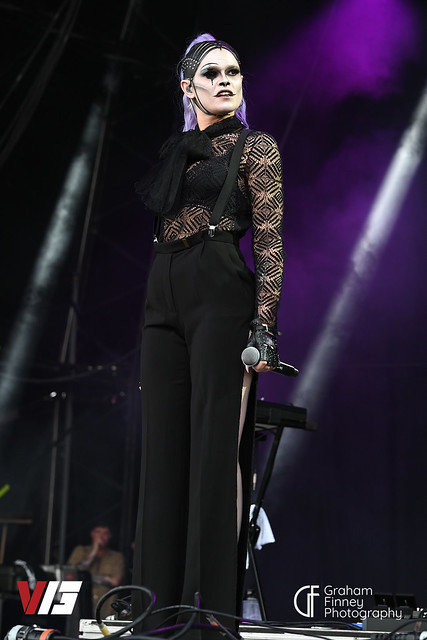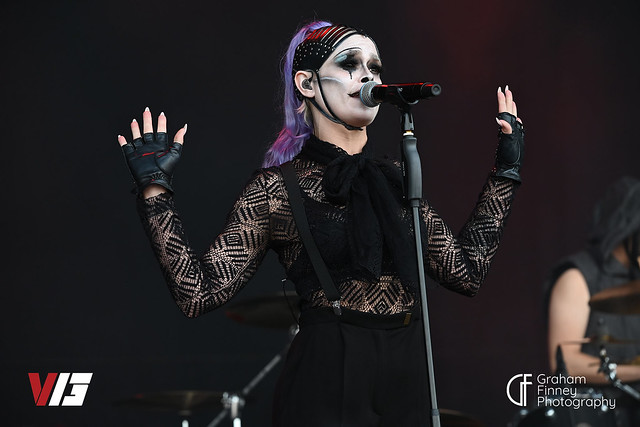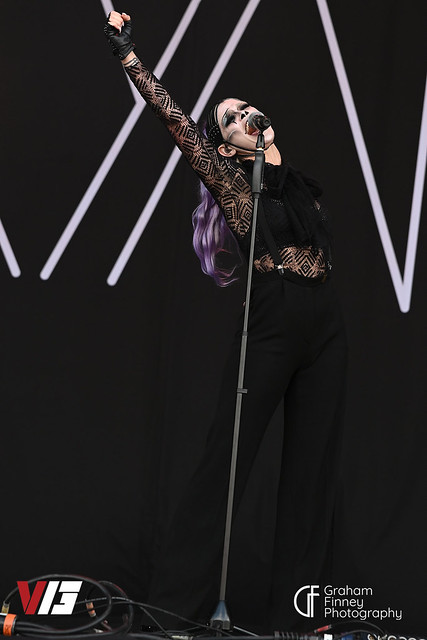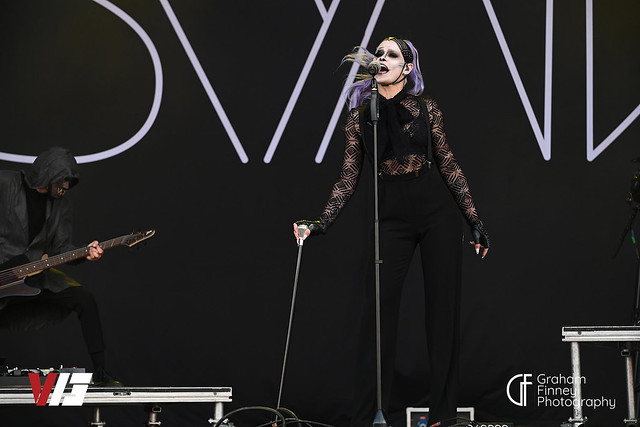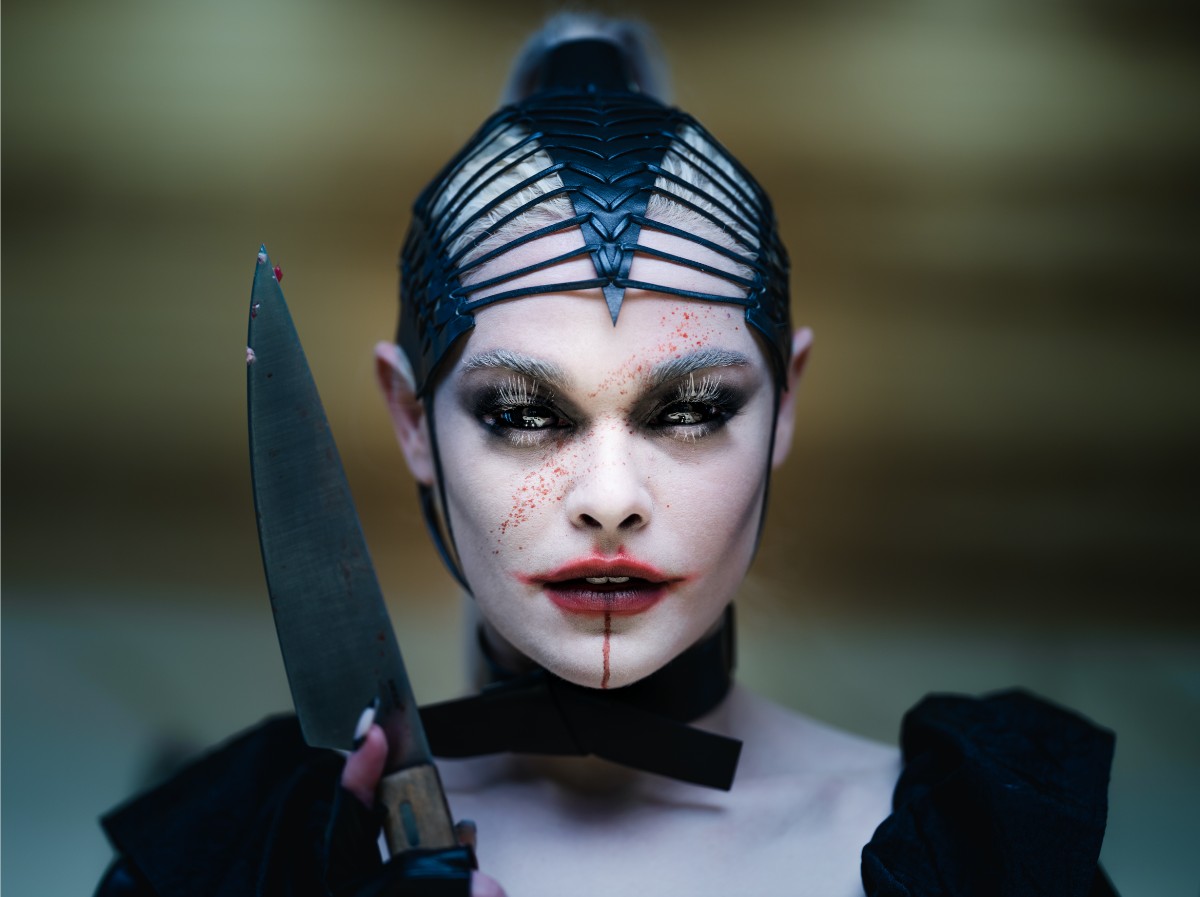

Metal
Skynd: “Everyone has that side to them, the dark side is just fascinating to people….”
In our latest Cover Story, the mysterious artist Skynd talks about her fascination with serial killers and true crime, plus her mental health battles.
For years, serial killers, true crime and heavy music have gone hand in hand. From Marilyn Manson to Slayer to Cannibal Corpse, many rock, metal and punk artists and fans alike have had a fascination with the darker side of life. One musician who shares that fascination with the macabre is industrial rock singer Skynd.
From an early age, the mysterious Skynd has had a deep connection with the dark depths of the human mind and, using her music and lyrics as an outlet, has brought those ideas and thoughts to life with the help of the equally mysterious Father, a like-minded individual who shares her love of the macabre.
In our latest Cover Story, we sat down with Skynd to talk about how her passion for the human mind’s “less savoury” side, why we have a fascination with serial killers and true crime, plus her own mental health challenges.
For more info on Skynd, check out her website here: https://skynd-music.com.
First of all, I read a recent interview with you where you talked about how, during lockdown, you went into a dark place mentally. Could you expand on that a bit and what you went through, especially as an artist that explores the dark side of the human mind…
Skynd: “I mean, for all of us, I guess it was hard. It was new, it was something uncertain. I was dealing with a lot of anxiety before it happened, before the pandemic started. I mean, Father and I, we were really having a really big growth, we were growing. We were running, it was going so well. And then it stopped. We played the Baby Metal Tour, where the European tour was the biggest thing ever to do then, out of the blue, you can’t go to Australia, you can’t tour the US, you can’t go to Europe again. It’s just not possible. To me, that caused a lot of anxiety because I wanted to play live and everything was so uncertain – are we ever gonna play live again? I feel this brought me into a really dark place, even though I live in a dark place, it was even darker.
“You have to portray it the way you see it. With the lyrics, you just have to be accurate. If you’ve romanticise it, it’s just not accurate to romanticise something that is super brutal.”
“Also, I wasn’t able to see Father, and he’s the biggest part of the writing and the translating music. Translating cases into music is a big thing for us. That’s what holds us together. It’s what we’re interested the most in besides playing live, obviously. We weren’t able to do that. I need him to create my music. It was just so lonely. Yes, I had companionship with my imaginary friend, he was here during the time, but he didn’t help because, although he was more pushing me to create, to write about this and that, I couldn’t share it with anyone besides on the phone with Father, which was not the same.
“As an artist, from that perspective, we need to produce videos but how are we going to do that if we’re not able to perform live? How are we going to make money to actually keep going to get the message we have out there? Everything was so uncertain, but what really kept me going was just trying to get my head into the true crime cases, and try to come up with new ideas and just be hopeful that everything will be okay.”
In terms of your subject matter, true crime, a lot of bands that cover that side of things write almost romantic fictional point of view. Looking at bands like Cannibal Corpse or Marilyn Manson, whenever they touch on the subject, it’s almost a tongue-in-cheek approach. You never went down that path. Why was that?
“It was never my intention to romanticise the facts of a case. I was never the person, or I was never able to do that. I still sing about true events of people. To me, romanticising it is just feels wrong, because I want to stay true to the facts and true to what really happened. I want to try to work around that without being too ironic about it or be too romantic about it. I really try to stay true to facts, that’s really important to me.”
“Also, I feel that, with the visual aspect or the video to it, it’s a different thing as well. You have to portray it the way you see it. With the with the lyrics, you just have to be accurate. If you’ve romanticise it, it’s just not accurate to romanticise something that is super brutal.”
What do you hope your listeners take out of reading the lyrics or watching the videos because, obviously, it’s something very, something very personal to you, when you write about the subject?
“I think what I would like is for people to just open up a conversation about it. To maybe read about it, if you haven’t heard, for example, of Jim Jones, and you listen to my song, then you start investigating and you get into the rabbit hole about people getting brainwashed and cults. I find it’s beautiful to see that a lot of people actually tell me that they didn’t know about someone so they investigated it further. That’s cool to see.
“I don’t want people to, without sounding too grotesque, I don’t want people to turn a blind eye to those cases. I want people to remember what happened and how we’re all able to commit horrible crimes, it just depends on the circumstances and the triggers. You have to open up a conversation. It is cool to see people talk about it.”
Why do you think there’s a fascination with true crime and serial killers? Why do you think we’ve got that obsession?
“I feel that, as humans, we are drawn to the bad side of the world because it makes us wonder the question ‘how was he able to kill so many people?’ or ‘how could she just skin her partner and then cut him in two?’ I think that fascination is of the bad world, the crimes that happen, the darkness to it. I think we all want to explore it a little bit even though we aren’t honest about it. I feel every one has that side to them even if it’s the fascination about true crime, the dark side is just fascinating to people.”
A few years ago, I read a book by a guy who’d written to a lot of serial killers and built up a relationship with them, Jeffrey Dahmer, John Wayne Gacy, people that. It made my skin itch a bit, it was quite terrifying how they got inside his head, through telephone conversations and things like that. Is there a serial killer that you’d to sit in a room with and have a conversation with? What would you ask them?
“I think all of them would be interesting because every every one is actually unique. I think if I have to pick one of them, I think I would pick Catherine Knight because she never really explained why or what was the true reason she did it. She did what she did. I think I would ask her that question. I think I would totally go for that question and ask her that because that would be interesting.
“If you think about Tyler Hadley, when he committed that crime, he was a teenager, seven years old. It would be interesting to see if he has grown in any way and, how he feels today, what is going on in his mind, that would be interesting, too. I think that, with the bigger serial killers, we have so many documentaries, or interviews or whatever that you can watch but Catherine Knight, or Tyler Hadley, the smaller cases would be actually interesting to investigate more.”
With those smaller cases, talking about going down a rabbit hole, you can go on YouTube and explore all of those smaller cases out there. Going back, your interest started back when you were a child. Where did that interest come from?
“When I was about three maybe four years old, my imaginary friend who introduced himself as Skynd, appeared for the very first time. He was actually the one starting to whisper all those horrible stories in my ear. I grew up with him. He’s still here. He never left. He actually inspired me to write about those cases. As I grew up and the stories got even more brutal, I felt I had to get it off my chest.
“I’m a huge Pink Floyd fan. The Wall, for example, it’s true events as well. So, you’re able to write about true events, why can you not just write about true crime? That’s how I started as a kid, just writing the lyrics down and visualising it in my head. That’s how it started the whole fascination with true crime because of him because he appeared and told me, this world is good and bad.”
I think the way you described it as ‘not a unicorn world’, was absolutely perfect…
“No, it’s not. It’s just not and I feel I got to know that from a really early age on because I was confronted with like, Gary Heidnik, for example. That was one of the first true crime stories I saw. I had this little TV in my bedroom and, at night, I wanted to sleep and my imaginary friend was telling me I had to watch the police investigation. So I watched it and I was so drawn to it because it was so interesting for me, but I couldn’t handle it. After a while, I just had to find a way to write it down.”
You spoke about Father early on. Father is someone you share a common interest within both true crime and music. What did it feel like meeting somebody that had that connection with you?
“Both of us have always felt we have this twin flame connection which sounds super romantic but it’s not in a romantic way. It’s more a long-lost brother you finally found and just have this connection with. I was searching for someone like him. I knew he was out there but I couldn’t find him. Suddenly, he was there. I knew he was the one I can write that music with. Yeah. So when we started writing, or when we started listening to music, and started creating sounds, it was this instant connection and it worked out so well. It’s a match made in heaven for me. To finally create what I want, I need him for the music. It works out so well.”
How does the creative process work between you? Where do you see it going?
“In the beginning, we had to find a way how to create. Because of my ADHD, we had to find a way how to just make me focus. We found a way that really works for both of us. I come up with the topic I want to write about and we start to create a feeling and an atmosphere. I tell him what I hear and he translates it into music. I can sing it. I can explain it. What I hear what I see. He just translates it into music.
“Sometimes the lyrics are there already when I investigate a case so I already come up with lyrics and ideas, then we put it into the sound. Sometimes we just finish the instrumental first and then we come up with the lyrics, but it always starts with the atmosphere, the feeling of the case, and how I picture the case in my head and how it should sound.”
“Gary Heidnik, that was one of the first true crime stories I saw. I had this little TV in my bedroom and, at night, I wanted to sleep and my imaginary friend was telling me I had to watch the police investigation.”
When you’re picking a particular case what do you look for? What pricks your interest?
“Whatever sparks my creativity. I have a notebook and I have so many cases in there. Sometimes I feel I can write about a case before it actually sparks my creativity so I know I’m going to pick that one. Or maybe there’s a new one happening, or there’s one I didn’t know about before. It just depends on the spark for me.”
Earlier on you talked about your imaginary friend. What about growing up? What about school friends and close friends? What was the reaction when you said your interest was true crime?
“I feel it’s it has always been something I was alone with. The interest wasn’t really common with friends.”
One thing I wanted to finish off on was mental health. When exploring cases and serial killers, you delve into the human psyche. For any of your fans who are struggling with their own mental health, do you have any message for them?
“I think the most important thing is to reach out if you need help. There’s help there, just stay strong. You will make it, you will always make it through it. It’s your brain who’s telling you differently, but that’s just a fucking lie. That’s just society telling you some standards or what you need to think. Telling you if you have autism, or if you have ADHD, you have to be a certain way or whatever. Just try to get through it… fight.
“If you have to find an outlet, then find it. I found it in making True Crime music. For you, if it is drawing black colour on the wall then do it. Try to find an outlet. If you don’t see the light at the end of the tunnel, it’s okay to live in the dark place. Look at me, I live in a dark place 24/7, and I’m good. You have to appreciate the dark as well.
“There’s always someone who, who needs you, or who wants you in their life and I feel it’s worth fighting for that.”
Later this Spring, Skynd returns to the UK supporting Ice Nine Kills on their European tour where fans will get to see the singer up close and personal. Full tour dates are here:
06/01 – London – Kentish Town Forum
06/02 – London – Kentish Town Forum
06/04 – Manchester – Academy
06/06 – Glasgow – O2 Academy
06/07 – Bristol – O2 Academy
06/12 – Nottingham – Rock City
-

 Alternative/Rock6 days ago
Alternative/Rock6 days agoThe Warning Shake the Foundations of a Sold-Out Leeds Stylus [Photos]
-

 Music2 weeks ago
Music2 weeks agoTake That (w/ Olly Murs) Kick Off Four-Night Leeds Stint with Hit-Laden Spectacular [Photos]
-

 Alternative/Rock6 days ago
Alternative/Rock6 days agoThe V13 Fix #011 w/ Microwave, Full Of Hell, Cold Years and more
-

 Alternative/Rock2 weeks ago
Alternative/Rock2 weeks agoThe V13 Fix #010 w/ High on Fire, NOFX, My Dying Bride and more
-

 Features2 weeks ago
Features2 weeks agoTour Diary: Gen & The Degenerates Party Their Way Across America
-

 Indie6 days ago
Indie6 days agoDeadset Premiere Music Video for Addiction-Inspired “Heavy Eyes” Single
-

 Folk6 days ago
Folk6 days agoKatherine Perkins Strikes the Right Tone with Her “Hold On” Music Video Premiere
-

 Country1 week ago
Country1 week agoBrooke Ashton Chats About Her “Someone” Single, Creative Process, and More!

